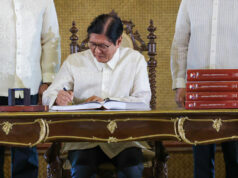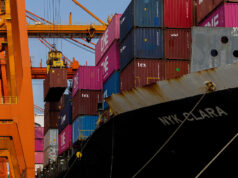PHL seeks another $500-M WB loan for coronavirus response
THE Philippine government is seeking another $500-million (P25.4-billion) loan from the World Bank (WB) to fund programs that will assist poor households and small businesses amid the coronavirus disease 2019 (COVID-19) pandemic.
The World Bank’s Board is scheduled to act on the proposed $500-million Philippines Emergency COVID-19 Response Development Policy Loan on May 20.
“The proposed operation, in the amount of US$500 million, is a stand-alone operation aimed at supporting critical policy and institutional measures taken by the government with the support of the Bank. The Development objective is to (i) mitigate the impact of COVID-19 on the poor and vulnerable households and (ii) provide financial relief to affected small and medium enterprises (SMEs),” the program information document read.
The Washington-based multilateral lender said the Philippine government’s direct cash aid program to 18 million of the poorest families and those in informal sectors; unemployment benefit program; and financial support to displaced overseas Filipino workers will have “positive impact in containing the expansion of poverty in the short-term.”
As the Luzon-wide enhanced community quarantine (ECQ) halted economic activities, the government rolled out social protection programs such as the P205-billion cash aid program to 18 million poor families and the P51-billion wage subsidy program for employees of small businesses.
“These support measures will help cushion the impact on poverty, by ensuring basic needs of poor and vulnerable households will be met during the ECQ despite the income losses incurred. These will prevent an increase in post-COVID poverty,” World Bank said.
WB estimates showed that “post-COVID-19 poverty” in the country could increase by 3.3 percentage points without government intervention while incomes could fall by 16.7% for workers in the informal sector or those under the “no work, no pay” scheme and other entrepreneurial activities due to disruptions caused by the lockdown.
Meanwhile, the WB said the government programs supporting the SME sector such as the two-tranche wage subsidy, credit guarantee scheme and tax breaks are “crucial in preventing small business owners from closing and millions of small business workers from losing their jobs.”
Citing results from a rapid survey of the government, it said 77% of micro and small firms and 62% of medium-sized firms were forced to close during the Luzon-wide lockdown while micro, small and medium enterprises (MSMEs) that remained open during the lockdown suffered an average 66.5% sales drop.
“Without strong government intervention, temporary closures may end up becoming permanent as these firms run out of working capital to finance ongoing fixed costs and risk eventually defaulting on their debt,” the World Bank said.
However, the “poor state of digital infrastructure” may lead to the slow implementation of the two social protection programs.
The multilateral development bank said the strong macroeconomic fundamentals of the country is “considered adequate” for the proposed project, with the economy maintaining its resilience to external and domestic shocks.
The World Bank also flagged that the project’s overall “risk rating is substantial,” largely due to the Philippines’ “political economy and governance challenges, macroeconomic, and weak institutional and implementation capacity.”
A more severe and prolonged virus outbreak is also seen to drag the country’s poverty reduction efforts and economic growth. The World Bank projected the Philippine economy to grow by three percent this year.
“A much worse outbreak that leads to an extended ECQ may risk overwhelming the government’s institutional and fiscal capacity to roll out enough health and social protection for its citizens,” it said.
Last week, the World Bank gave the green light for a $100-million loan for the country’s emergency COVID-19 response programs. It also approved earlier this month the $500-million (P25.4-billion) Third Risk Management Development Policy Loan to improve the government’s capacity to respond to natural disasters, including the COVID-19 pandemic.
On Thursday, the Asian Development Bank (ADB) has likewise approved a $1.5-billion loan to beef up the state’s coffers for coronavirus response.
The Department of Finance earlier said it targets to tap a total of $5.7 billion in financial assistance from multilateral agencies such as the World Bank and ADB. — Beatrice M. Laforga



